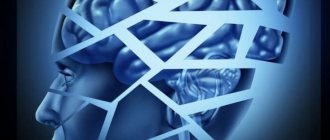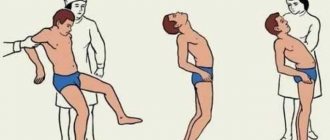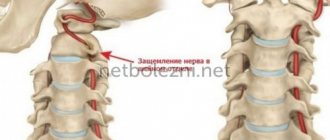Human speech belongs to the highest cortical functions; in order to pronounce the simplest sentence, the integrative activity of many parts of the brain and the vocal apparatus is required. This is the most important condition for communication, without which it is impossible to communicate with your own kind. Features of speech directly depend on education and horizons. Speech impairment in an adult always indicates a serious illness. Speech disorders can be congenital or acquired.
At CELT you can get advice from a neurologist.
- Initial consultation – 4,000
- Repeated consultation – 2,500
Make an appointment
Congenital disorders begin in early childhood and accompany a person throughout his life, practically impossible to correct. Acquired speech disorders always have a pathological cause, organic or functional. Organic causes include damage to the structures of the brain and speech apparatus. Functional include various environmental factors that temporarily disrupt the functioning of the nervous system. These are stress, infections, trauma, mental illness.
The following types of speech disorders are distinguished:
- change in tempo - acceleration (tachylalia) or deceleration (bradylalia);
- nasality;
- stuttering;
- dyslalia or tongue-tiedness - “swallowing” of syllables or letters, slurred and unclear speech;
- aphasia or the inability to speak, which in turn is divided into several types - motor, sensory, -
- conductive or conductive, acoustic-mnestic, optical-mnestic, total;
- dysarthria - impaired articulation;
- oligophasia (“few words”) - a condition after an epileptic seizure, when a person is deafened by the convulsions he has experienced and speaks little and in monosyllables;
- mutism (silence);
- dysphonia (hoarseness) or aphonia (lack of voice).
Only a doctor can accurately determine the type of speech disorder; a complete diagnosis sometimes requires a neurolinguistic examination performed by a psychologist and speech therapist. Almost always it is necessary to study the characteristics of blood flow, the affected area, the site of injury, or to identify an infectious or toxic agent.
Change of pace
A normal speech rate is 10 or 14 words per minute. The most common reason for a change in pace is emotions or mental disorders. Stressful influences - an unfamiliar environment, communication with an authoritarian person, an argument - can cause both acceleration and deceleration. Long-term acceleration of speech is observed in affective psychoses (the old name is manic-depressive) and other conditions when thinking is accelerated. Speech also accelerates in Parkinson's disease, accompanied by shaking paralysis. The rhythm and fluency of pronunciation suffers.
Slow speech with a small vocabulary is typical for persons with mental retardation or dementia that has developed as a result of various diseases of the nervous system. Words and sounds are drawn out, pronunciation is unclear, wording is primitive or incorrect.
Nasality can be a consequence of both a displacement of the nasal septum and paralysis of the muscles of the palate. A transient nasal sound is familiar to everyone; it happens with a severe runny nose. If there is no respiratory infection, then nasality is a reason to urgently consult a doctor.
Forms of speech impairment
| Name of disorder | Main symptoms |
| Acoustic-mnestic aphasia | Speech is confused and slurred. Pauses between phrases. |
| Efferent-motor form of aphasia | There is a displacement of phonemes and a violation of articulation. |
| Alalia | Verbal communication is almost impossible. The vocabulary is insufficient, division into syllables is difficult. |
| Bradylalia | Slowing down the rate of speech is also reflected in writing and reading. Characterized by monotony. |
| Dysarthria | Complex disorders affect motor skills, breathing, timbre and strength of the voice. |
| Dysorphography | The patient makes mistakes when writing, but they are not associated with awareness of the rules of writing or pronunciation. |
| Dysgraphia | Partial spelling disorders due to insufficient control of written speech. |
| Dyslexia | Loss of reading skills, the patient has difficulty mastering the material read. |
| Dislalia | Against the background of normal hearing and correct articulation, a violation of the pronunciation of sounds is noted. A dentist is hired for diagnosis. |
| ZRR | More often found in childhood: a poor vocabulary, monotonous speech without intonation. |
| Stuttering | The tempo is interrupted cyclically when certain sounds are repeated. |
Stuttering or logoneurosis
Develops in adults after severe fright or unbearable stress against the background of congenital insufficiency of the speech apparatus. The reasons may be outwardly harmless, but affect concepts that are important to a person - love, affection, family feelings, career aspirations.
The basis is a neurotic disorder. Logoneurosis often intensifies in situations of tension - at crucial moments, when speaking in public, during an exam, during a conflict. Several unsuccessful attempts or tactless behavior of others can lead to a fear of speech, when a person literally “freezes” and cannot utter a word.
Logoneurosis manifests itself as long pauses in speech, repetitions of sounds, syllables or entire words, as well as spasms of the lips and tongue. Trying to “skip” a difficult place dramatically increases stuttering. At the same time, there are no specific words or sounds on which a person stumbles; speech may stop on any word.
Stuttering is always accompanied by respiratory neurosis, when respiratory spasms occur. Almost always, along with the fear of speech, a person is worried about anxiety, decreased self-esteem, internal tension, sweating, and sleep disorders. Additional movements in the form of tics of the facial muscles, movements of the arms and shoulder girdle are common. Successful treatment of stuttering is possible at any stage; it is important to consult a doctor in time.
Aphasia
This is a violation of the structure of speech or understanding of its meaning.
Motor aphasia is a sign of damage to Broca's area or the lower parts of the frontal lobe. The person understands the spoken speech, but cannot say anything. Sometimes individual words or sounds break through, often obscene. This speech disorder is almost always accompanied by motor disorders in the form of paralysis of the right limbs. The cause is blockage of the superior branch of the middle cerebral artery.
Sensory aphasia is the inability to understand the meaning of speech, develops when the temporal gyrus of the hemispheres or Wernicke's area is damaged. The person does not understand the spoken speech, but fluently pronounces a set of words devoid of any meaning. The handwriting remains the same, but there is no essence in what is written. Often combined with visual impairments, the person is not aware of his defect. The cause is blockage of the lower branch of the middle cerebral artery by an embolus or thrombus. Conductive or conductive aphasia - a person understands speech, but cannot repeat anything or write from dictation. Speech consists of many mistakes that a person persistently tries to correct, but cannot. The white matter of the brain in the supramarginal gyrus is affected.
Acoustic-mnestic - a person cannot pronounce long complex phrases, making do with a minimal primitive set of words. It is extremely difficult to find a word. Develops with damage to the left temporal region, characteristic of Alzheimer's disease.
Optical-mnestic - a person recognizes objects, but cannot name or describe them. The loss of simple concepts from everyday life impoverishes both speech and thinking. Develops in toxic and dyscirculatory encephalopathies, as well as brain tumors.
Total aphasia - there is no ability to understand speech, nor to say or write anything. Characteristic of cerebral infarctions in the middle cerebral artery basin, often accompanied by paralysis, visual impairment and sensitivity. When blood flow through the middle cerebral artery is restored, speech may be partially restored.
Rehabilitation
As soon as a speech disorder after a stroke is diagnosed, doctors develop a rehabilitation program: how to restore it and return the patient’s social life skills. The speech therapist determines which skills are impaired and develops an individual program, conducts training and gives homework. Here, success largely depends not only on the quality of rehabilitation, but also on the efforts and determination of the patient himself.
The program may include:
- reading short sentences with the doctor;
- learning standard phrases with gradual expansion of the vocabulary;
- reasoning about the functional significance of objects;
- as recovery progresses, more complex word forms are used;
- at the end the patient retells the sentences in his own words.
Each speech therapist has his own peculiarities of treating speech impairment during a stroke - the doctor tries to use effective techniques that bring results. It is better to contact trusted and qualified doctors who will help you gain conversational and social skills.
Our rehabilitation center provides a comprehensive program for the recovery of patients with speech impairment after a stroke. We try to select an effective program and monitor the rehabilitation process.
Our doctors
Pankov Alexander Rostislavovich
Neurologist
40 years of experience
Make an appointment
Novikova Larisa Vaganovna
Neuropathologist, Candidate of Medical Sciences, doctor of the highest category
Experience 39 years
Make an appointment
Dysarthria
Dysarthria is a violation of pronunciation or articulation due to paralysis of the bulbar muscles, dysfunction of the facial muscles. The motor skills of speech, the pronunciation of sounds, the rhythm of breathing, and intonation coloring are impaired. It becomes difficult to understand what the person wants to say. People around you notice dysarthria. The person slurs his speech, speaks unclearly, and slurs simple words. The meaning and tempo most often do not change, and the strength of the voice is impaired. This disorder is always caused by an organic cause - impaired blood flow, infection or intoxication. In case of such a disorder in an adult, an urgent need to contact a neurologist to find out the cause. There may be a tumor of the nervous system, trauma, hemorrhage or ischemia (oxygen starvation). Dysarthria manifests itself in multiple sclerosis, amyotrophic lateral sclerosis, Parkinson's disease, myotonia, cerebral atherosclerosis, syringobulbia and many other nervous diseases. In healthy people, dysarthria is observed in a state of deep intoxication.
Dysarthria resulting from diseases has several forms:
- bulbar, caused by damage to the nuclei of the cranial nerves, occurs with cerebrovascular accidents, manifests itself as a single slit sound;
- pseudobulbar (damage to one side of the speech muscles), which occurs when the pathways from the cerebral cortex to the nuclei in the brain stem are damaged, manifests itself as slurred, slurred speech with the inability to pronounce hissing and whistling sounds;
- extrapyramidal, when the nerve nuclei located in the subcortex are affected, manifested by involuntary guttural cries;
- cerebellar - “chanted” speech;
- hemispheric or cortical, when lesions occur in the cortex, the use of all linguistic means becomes difficult.
Neurologists and speech therapists are involved in the diagnosis and treatment of diarthria.
Diagnostic features
It is necessary to analyze the complaints expressed by the patient. The medical history is also taken into account. Experts usually ask when the slurred speech appeared and whether there are any relatives suffering from such an illness. You definitely need to visit a neurologist and get examined by him. The doctor will check the mandibular and pharyngeal reflexes, examine the pharynx, and make sure there is atrophy of the tongue muscles.
The reflexes of the lower and upper extremities are checked. You should be examined by a speech therapist. The doctor evaluates speech indicators, identifies tempo disturbances and difficulties. An examination by an otolaryngologist is necessary, which will protect against processes in the mouth such as ulcers and tumors, which can cause problems.
A computed tomography and magnetic resonance imaging scan of the head is performed, which will help identify the cause of slurred speech. The causes in adults and children are determined in consultation with a neurosurgeon. Only after a complete diagnosis are treatment methods prescribed.
Mutism
The etiology of mutism is complex - silence develops both in people with intact brain and speech apparatus, and in many brain lesions.
Sometimes mutism is caused by atrophy of Broca's area or other brain lesions that are not immediately detected. Akinetic mutism develops with the loss of all voluntary movements, including speech. Such mutism has been described in coma, AIDS, and neuroleptic syndrome. This is a condition in which a person looks intently into the eyes of his interlocutor, but cannot move or utter at least one sound. A similar condition is observed in the acute period of severe traumatic brain injury, when not only speech is impaired, but also consciousness, along with other voluntary functions.
Often the cause of mutism is mental illness, especially hysteria, deep depression, catatonia (special movement disorders when a person looks like a wax doll) with endogenous major psychoses. Hysterical mutism occurs more often in women and is accompanied by demonstrative behavior aimed at achieving one’s goals.
Speech disorders in adults
So, my grandmother. A very independent 86 year old man. She has lived alone for many years and manages the housework herself. He actively communicates with his friends and takes part in all public events in the area. We are used to seeing her strong, energetic and respected by everyone.
Voice from the Well
One day I called her, as usual, to inquire about her well-being, her affairs, to hear about the next council of veterans and preparations for the May Day demonstration. But I heard a strange dull voice, sluggish and slow. To all my questions about her health, she answered that nothing hurt, but her speech was slow and quiet - as if I were talking to a person sitting at the bottom of a well. I asked how she slept. It turned out that she had trouble falling asleep the night before, so she decided to take sleeping pills. I sighed with relief, deciding that such lethargy was due to the influence of sleeping pills, and went about my business.
The next day the story repeated itself. Only depression was added to the slow speech: “I won’t live to see summer,” etc. I thought it would be right to cheer up my grandmother, give her an incentive - my son is finishing school in the summer, there will be graduation - I definitely have to survive.
And again she did nothing. How I scold myself now for this!
When nothing changed on the third day, I ran to my grandmother’s house. She is pale, lethargic, lies all the time, does not eat anything. I called an ambulance. They arrived and within 2 minutes after they entered the apartment, I heard the word “stroke”.
Clear signs of a stroke
· The doctor simply asked the grandmother to stick out her tongue - the tongue deviated to the side.
· He asked me to raise both hands up - one rose, and the other immediately fell down.
· I asked her to tell me her date of birth, but she didn’t remember.
· I ran the tip of a pencil over one hand and the other - it turned out that one hand did not feel anything (exactly the one that the grandmother could not lift).
Such simple signs. Of course, I could have checked it myself, suspected it and raised the alarm earlier...if I had known. I imagined a stroke as a real blow: a person is standing, walking, and suddenly falls on the spot. He loses consciousness and is taken to the hospital where he is diagnosed with a stroke. It turns out that it happens differently.
My grandmother was diagnosed with an ischemic stroke of the brain, which, it turns out, can actually develop gradually. But, as the doctor later explained to me, it is very important to start treatment measures as early as possible. The earlier treatment begins, the less likely there are irreversible changes. Brain cells do not die immediately; they can still be saved for some time, as well as protect neighboring cells from destruction and stop the spread of the pathological process. This is what treatment in the hospital is aimed at.
First, the grandmother was admitted to intensive care, where she stayed for a day. During this time, the condition worsened. When she was transferred from the intensive care unit to the neurological department, my grandmother could not speak or get up, and yet she left the house “on her own two feet.” The doctor asked not to be alarmed and said that this is the normal course of this pathology. And then the treatment began, which lasted 3 weeks. During this time, my grandmother began to speak and walk again, but she flatly refused to work with a speech therapist and did not want to train her arm. And she continued to be very lethargic, sleeping all the time.
The day of discharge arrived. The attending doctor said that everything that they could do in the hospital was done. Now we are moving into the rehabilitation period, and now everything depends on how the grandmother will work to restore lost functions. Of course, they prescribed all sorts of medications, but my grandmother’s indifference and apathy continued to bother me.
Houses and walls heal
But at home, everything changed in a few days. We figured out how to make classes interesting.
He doesn’t want to work with a speech therapist, we’ll sing songs. They started playing her favorite songs, she sang with pleasure, and her speech began to noticeably improve.
She doesn’t want to do exercises for her arm, so they came up with something for her to do: write memoirs. Given a laptop, he sits, typing text. Willy-nilly, the fingers work. Soon I was able to hold a cup and use cutlery.
And most importantly, my mood has improved. Girlfriends come and talk about similar incidents in the life of the Veterans Council. It turns out that many of those around them suffered a stroke. Some recovered better, others worse.
I look at my grandmother and rejoice at her every success: she went out for a walk and baked pies herself. But the feeling of guilt never leaves me alone - if I had realized in time that trouble had happened, perhaps my grandmother’s condition would have been much better. You need to be more attentive to your loved ones!
Dysphonia
A disorder in which the voice loses its sonority. It happens with respiratory infections, diseases of the vocal cords, tumors. This is an occupational disease of singers, teachers, and public figures.
CELT doctors understand in detail what exactly happened to a person’s speech. High-class diagnostics and timely treatment help to save patients with cerebrovascular accidents, growing tumors, and aggressive infections.
Make an appointment through the application or by calling +7 +7 We work every day:
- Monday—Friday: 8.00—20.00
- Saturday: 8.00–18.00
- Sunday is a day off
The nearest metro and MCC stations to the clinic:
- Highway of Enthusiasts or Perovo
- Partisan
- Enthusiast Highway
Driving directions
Principles of treatment
If slurred speech is detected, what to do? It is necessary to treat the main disease that caused the disorder:
- Tumors are removed surgically.
- Resection of the hematoma if it is on the surface.
- Surgical removal of ulcers in the skull followed by the administration of antibacterial agents.
- Normalization of pressure.
- Using drugs to restore metabolism and cerebral blood flow.
People with various disorders need to visit a speech therapist so that the deficiency can be corrected with the help of special exercises. Regular classes are required.











